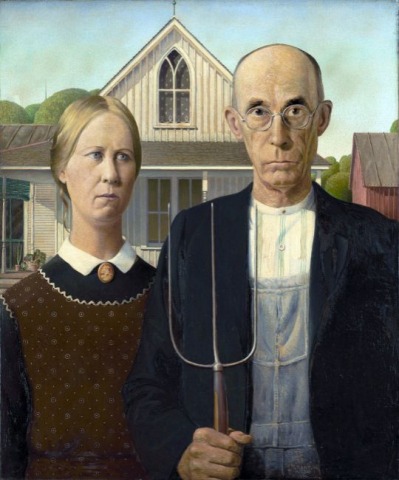
Monday – student letter day!
Question:
I am an incoming college freshman who has a philosophical disagreement with my dad (whom I respect dearly). After receiving a large graduation donation from my southern grandparents, we discovered that I differed from his approach to integrity in reactions to gifts. As someone who we both respect, I'm asking if you can answer this: Should we show fake or overreacted gratitude in order to fulfill the desires for validation of the giver? My thought is that not only is showing your honest gratitude more valuable, but also deceiving others is clearly wrong. He says that you should over-act to show value to the recipients if their culture values overreaction.
Reply:
Well, I don’t know what you mean by excessive gratitude, but I think you are asking the wrong question. Instead of asking whether you ought to act more grateful than you feel, you should be asking how grateful you ought to feel -- and then acting that way! The answer to the question “How grateful should I feel for a generous gift?” – by the way, it is a gift, not an obligatory “donation” -- is “very grateful indeed.” So act very grateful indeed!
For starters, you might write your grandparents a letter thanking them warmly for their gift and telling them all about your college plans. If they live nearby, you could take them out to lunch at your own expense and tell them over the meal instead. A letter now and then while you’re at school, telling them how things are going, would be a good idea too.
Your objection is that you ought to act how you feel. You’re wrong -- there is no such moral law as “Always act how you feel.” Sometimes the moral law requires us to act differently than we feel; in fact, sometimes it even requires us to try to change our feelings. Gratitude is something you owe your grandparents, and you should give to each person what you owe. So you should act with gratitude, and also try to feel grateful. If you don’t yet feel grateful, you should at least act as though you do. You should be concerned enough about the fact that you don’t feel that way yet to want to become a different person.
Before I end this letter, let me clear up two other confusions in yours. One of them concerns the meaning of sincerity. Of course we shouldn’t tell lies. Sinful creatures that we are, however, our feelings are often at war with the persons we ought to be. One of the things that we can do about this is wear a mask, just as beautiful as we can make it. This is called courtesy. Masks, of course, can be used to deceive, but in courtesy, our motive is different. As C.S. Lewis pointed out, I wear a courteous mask partly in the hope that my true face will gradually grow to fit it, and partly in the hope of not setting a bad example in the meantime. The words of courtesy, such as "If you please," "thank you," and "the pleasure is mine," may be mere formulae, but they rehearse the humility, gratitude, and charity that I know I ought to feel, do not feel yet, and hope to feel in the future.
The other confusion concerns the meaning of selfishness. You suggest that your grandparents’ expectation of gratitude is merely a selfish desire for validation. That’s a little bit like a husband viewing his wife’s expectation of faithfulness as a selfish desire for security, a customer viewing the shopkeeper’s expectation of being paid as a selfish desire for income, or a big fellow viewing a little fellow’s expectation of not being hit in the nose as a selfish desire for physical comfort. On the contrary, gratitude is a moral law, just like faithfulness, justice, and consideration are moral laws. It isn’t selfish for your grandparents to hope that you will be a virtuous grandson who appreciates their gift. There would be something wrong with them if they didn’t want that. The real selfishness lies in thinking their hope selfish.
I’m glad you have respect for your dad. Try to have a little more for your grandparents. I hope this is helpful.